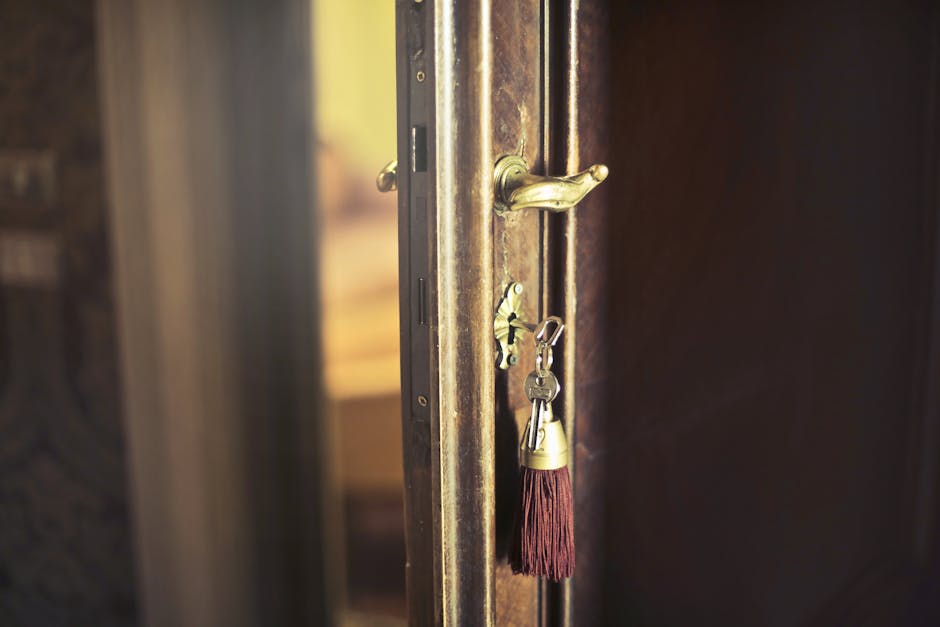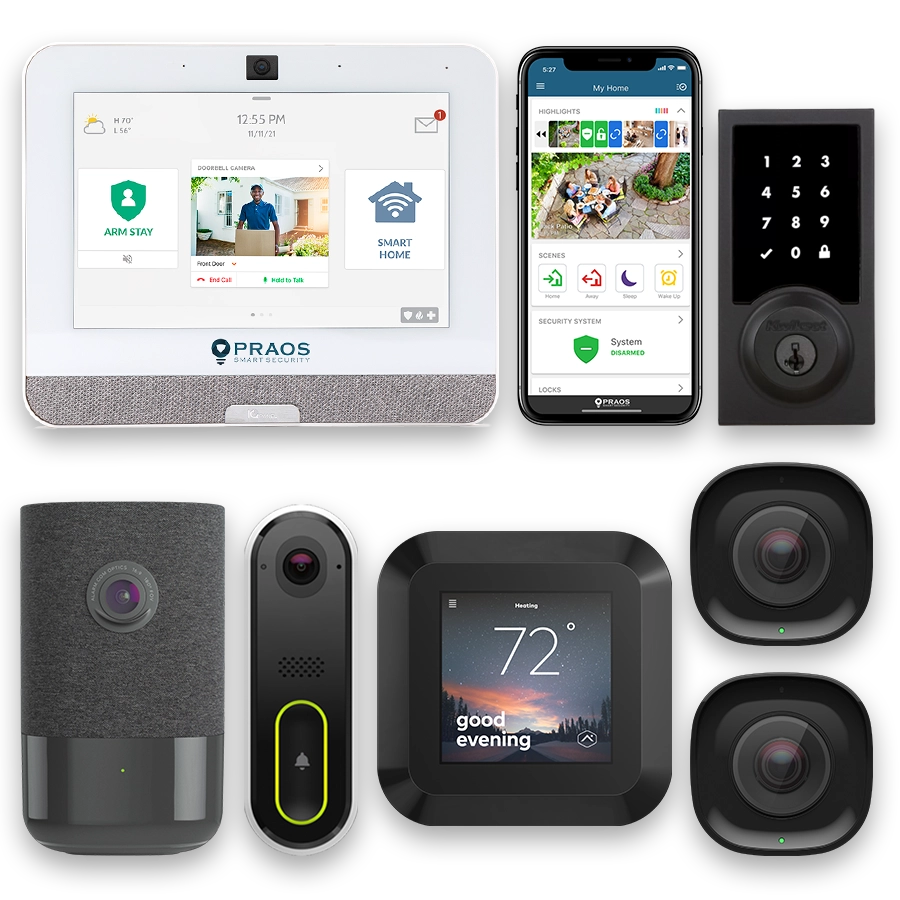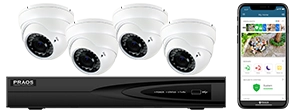- Introduction to Home Security Systems in Richmond
- Assessing Local Crime Statistics and Security Needs
- Key Features of Effective Home Security Systems
- Top Home Security Providers in Richmond
- Comparative Analysis: Cost vs. Benefits of Home Security Systems
- Installation and Maintenance Tips for Homeowners
- Impact of Home Security Systems on Community Safety
- Future Trends in Home Security Technology and Services
Introduction to Home Security Systems in Richmond
Navigating the complexities of home security is a priority for residents of Richmond. Proper understanding and implementation of a home security system can significantly deter crime, providing peace of mind to homeowners.
Richmond, known for its historical significance and vibrant culture, is not immune to the security challenges faced by growing urban areas. The rise in residential burglaries and property crimes highlights the need for robust home security measures. According to the FBI’s Uniform Crime Reporting (UCR) Program, property crime rates, including burglary, larceny-theft, and motor vehicle theft, remain a concern in urban settings like Richmond.
The importance of home security systems extends beyond mere crime deterrence. These systems create a layered defense that encompasses intruder detection, environmental hazard monitoring, and emergency response. Modern home security systems integrate several technological advancements, including motion sensors, surveillance cameras, smart locks, and alarm systems, offering comprehensive protection.
An effective home security system consists of several core components:
- Surveillance Cameras: Provide real-time monitoring and video recording, which is essential for both deterrence and evidence collection.
- Motion Detectors: Trigger alerts based on movement within a designated area, increasing the likelihood of detecting unauthorized entry.
- Smart Locks: Enhance door security with remote access control, allowing homeowners to lock or unlock doors via smartphone apps.
- Alarm Systems: Sound an audible alert when unauthorized entry is detected, often paired with notifications to local law enforcement.
- Environmental Sensors: Monitor for hazards such as smoke, fire, carbon monoxide, and flooding, ensuring comprehensive safety beyond intrusion.
Choosing the best home security system involves an understanding of local crime patterns specific to Richmond. Analysis of crime statistics can guide homeowners in selecting features that align with prevalent threats in their area.
A balanced approach to home security includes both preventive measures and responsive capabilities. By investing in a reliable home security system and staying informed about crime trends, Richmond’s residents can significantly enhance their residential safety and contribute to the overall wellbeing of their community.
Assessing Local Crime Statistics and Security Needs
Richmond, Virginia, like many urban areas, has its own unique set of security challenges. Understanding local crime statistics and security needs is essential for choosing the best home security system.
Crime Statistics in Richmond
According to the Federal Bureau of Investigation’s (FBI) Uniform Crime Reporting (UCR) Program, Richmond witnesses a variety of crime rates that underscore the necessity for robust home security measures. In recent years, property crimes such as burglary, larceny-theft, and motor vehicle theft have been prevalent. In 2020, for instance, the Richmond Police Department reported over 2,000 instances of burglary and over 8,000 cases of larceny-theft. Awareness of these statistics can guide homeowners to prioritize specific security features.
Burglary Trends and Patterns
Analysis of seasonal and regional trends indicates that burglaries peak during specific times of the year, particularly the summer months. Hotspots tend to be concentrated in densely populated neighborhoods and areas with lower socio-economic indicators. This pattern suggests the need for heightened vigilance and possibly the deployment of advanced security systems in these localities.
Assessing Security Needs
Determining the appropriate security measures starts with a comprehensive risk assessment:
- Vulnerability Analysis: Identify the weak points in your home’s current security setup, such as entry points, windows, and garage doors.
- Property Layout: Consider the layout and size of your property. Larger homes may require more extensive and integrated security systems.
- Neighborhood Profile: Take into account the crime profile of your neighborhood, including the types of crimes that are most common.
- Personal Concerns: Address any specific personal or family concerns, such as high-value items or loved ones with special needs.
Importance of Community Engagement
Engaging with community initiatives such as local neighborhood watch programs can significantly enhance the effectiveness of individual home security systems. Collaborative efforts often lead to shared information and resources which help in recognizing suspicious activities and mitigating threats.
Conclusion
By thoroughly assessing local crime statistics and understanding specific security needs, Richmond homeowners can make well-informed decisions when selecting their home security systems. Analyzing crime trends, evaluating property vulnerabilities, and staying engaged with community efforts form the cornerstone of a comprehensive approach to residential safety.
Key Features of Effective Home Security Systems
When selecting a home security system, it is critical to consider several key features that ensure both effectiveness and reliability. These features are designed to provide comprehensive protection and peace of mind for homeowners.
1. Monitoring Services
A pivotal feature of any home security system is monitoring service. This can be either self-monitored or professionally monitored. Professional monitoring involves a team of experts who keep an eye on your home 24/7 and alert authorities in the event of an emergency. According to the Federal Trade Commission, professionally monitored systems offer higher security assurance compared to self-monitored setups.
2. Alarm Systems
Effective home security systems should include robust alarm systems that can deter potential intruders and alert homeowners of any intrusion. The alarm should be loud enough to warn residents and possibly neighbors. Additionally, many modern alarm systems are connected to monitoring centers for real-time response.
Surveillance cameras are essential for both deterrence and evidence collection. Features to look for in security cameras include high-definition video quality, night vision, wide-angle lens, and remote access via mobile devices. Cameras that record footage continuously and can store data either locally or on the cloud are particularly useful.
4. Smart Home Integration
Smart home integration allows your security system to connect with other smart devices in your home for enhanced control and convenience. This can include integration with smart locks, lights, thermostats, and even virtual assistants. Systems that are compatible with popular smart home platforms, such as Amazon Alexa, Google Assistant, or Apple HomeKit, offer added flexibility and functionality.
5. Motion Detectors
Motion detectors are crucial in detecting unauthorized movements within your home. Modern motion detectors use advanced technologies like infrared or microwave detectors to differentiate between human movement and other sources of motion, reducing the likelihood of false alarms.
6. Entry Sensors
Entry sensors should be placed on doors and windows to detect when they are opened. These sensors can immediately trigger an alarm or alert the homeowner of a potential security breach. Entry sensors are a fundamental component of any comprehensive home security system.
7. Environmental Sensors
Effective home security extends beyond protection from intrusions. Environmental sensors that detect smoke, carbon monoxide, and water leaks can alert homeowners to potential life-threatening situations and property damage. Integrated systems will send alerts to both the homeowner and monitoring services for a swift response.
8. Battery Backup
A reliable home security system must function during power outages. Battery backup ensures that all components of the system continue to operate without interruption. This is particularly important in areas prone to natural disasters where power outages are common.
9. Mobile Access and Alerts
Mobile access allows homeowners to monitor and control their security system remotely via a smartphone app. This feature provides convenience and peace of mind, as users can receive real-time alerts, view live video feeds, and arm or disarm their system from anywhere.
By considering these key features, homeowners can select a home security system that provides comprehensive protection and meets their specific needs. Each feature plays a vital role in ensuring a secure and safe living environment.
Top Home Security Providers in Richmond
When it comes to securing your home in Richmond, choosing a reliable and experienced home security provider is critical. Among the top home security providers in Richmond, Praos stands out for its commitment to ensuring the safety of your family and property through comprehensive and advanced security solutions.
Praos has garnered a reputation for excellence with its extensive knowledge of local security needs and an award-winning service track record. Offering a range of solutions tailored to individual requirements, Praos provides new customers with significant benefits, including FREE Equipment and Free Installation as part of their monitored new system plan.
Understanding that modern-day security needs to go beyond mere surveillance, Praos is at the forefront of creating a connected home experience. Their integrated system allows users to control security, automation, and surveillance through a single connected app. This cohesive approach ensures that no matter where you are, your home remains monitored and protected, providing you with peace of mind at all times.
The customization options provided by Praos are another noteworthy aspect. Their team works closely with clients to design a smart home system that meets both their security needs and budget constraints. This bespoke service ensures that each household receives a tailored solution rather than a one-size-fits-all model.
Affordability is also a key factor in Praos’ offerings. With monitoring rates starting at just $19.95 per month, getting high-quality home security is accessible for many households. These competitive rates, coupled with free equipment and installation, provide significant value for homeowners looking to enhance their residential security.
Praos’ commitment to customer service and local expertise makes it a top contender for anyone considering home security in Richmond. By integrating advanced technology with personalized service, they ensure that each customer receives a robust and reliable security solution.
Comparative Analysis: Cost vs. Benefits of Home Security Systems
When evaluating home security systems, it’s crucial to weigh the costs against the benefits they provide. This analysis helps homeowners make informed decisions, ensuring they get the best value for their investment while enhancing their residential safety.
One of the primary considerations is the initial cost, which includes the purchase price of equipment and installation fees. Additionally, ongoing costs such as monthly monitoring fees, maintenance, and potential upgrades must be factored in.
Here is a comparative analysis of average costs versus key benefits of various home security systems in Richmond:
| Cost Components | Benefits |
|---|---|
|
|
While higher-end systems with extensive features and professional monitoring incur significant upfront and ongoing expenses, they provide comprehensive protection and a quicker response to incidents. Basic systems with self-monitoring options are more cost-effective but may lack some advanced features.
Insurance companies often offer discounts on policies for homes with approved security systems. The reduction in premiums can offset a portion of the system’s costs, making them a more attractive investment.
Long-term benefits, such as reduced burglary risks and the associated costs of property loss or damage, further underscore the importance of investing in a reliable home security system. Homeowners should balance their budget constraints with the desired level of security to determine the most suitable option for their needs.
Installation and Maintenance Tips for Homeowners
Proper installation and regular maintenance are critical components in maximizing the effectiveness of home security systems. This chapter provides essential tips for homeowners in Richmond regarding the installation and upkeep of their systems.
DIY vs. Professional Installation
Homeowners have the option to either install their security systems themselves or hire professionals. Both approaches have their pros and cons.
- DIY Installation: Often more cost-effective and allows for customizable setup. However, it may lack the precision and expertise that comes with professional installation.
- Professional Installation: Ensures optimal placement and configuration of equipment. This comes at a higher cost but is usually accompanied by guarantees or warranties.
Key Installation Tips
Regardless of the chosen installation method, certain best practices can enhance the effectiveness of the security system:
- Optimal Placement of Cameras: Cameras should cover key entry points like doors and windows. Exterior cameras should be installed at a height to avoid tampering.
- Sensor Placement: Motion detectors and door/window sensors should be placed to ensure maximum coverage without being prone to false alarms.
- Router and Hub Position: Ensure that any central control hub or Wi-Fi router is situated to cover all wireless devices within the system and is secure from potential tampering.
Maintenance Tips
Regular maintenance ensures that the security system remains fully operational. Here are some general maintenance guidelines:
- Regular Testing: Periodically test sensors, alarms, and cameras to confirm they are functioning correctly. Most systems come with a testing mode.
- Software Updates: Keep the firmware and software up to date to protect against vulnerabilities and to benefit from new features. Many systems automatically update, but manual checks are advisable.
- Battery Checks: Many components, especially wireless devices, rely on battery power. Regularly check and replace batteries as needed to ensure continuous operation.
Professional Maintenance Services
Engaging professional maintenance services can provide additional peace of mind. Many security companies offer maintenance packages that include regular inspections, updates, and repairs.
| Service | Description |
|---|---|
| Annual Inspection | Thorough yearly check of all system components to identify and rectify issues. |
| 24/7 Monitoring | Continuous monitoring service with immediate response to alerts or malfunctions. |
| Emergency Repairs | Availability of rapid repair services in case of component failure or damage. |
By adhering to these installation and maintenance tips, homeowners in Richmond can significantly enhance the reliability and effectiveness of their home security systems.
Impact of Home Security Systems on Community Safety
Understanding the Impact of Home Security Systems on Community Safety
Home security systems play a crucial role in enhancing the overall safety of communities. Research has shown that the presence of security systems can act as a deterrent for criminal activities. According to a study conducted by the University of North Carolina at Charlotte, approximately 60% of convicted burglars stated they would target another home if they discovered an alarm system was present.
Beyond individual deterrence, the widespread adoption of home security systems has a cumulative effect on community safety. When several homes within a neighborhood are equipped with such systems, they create an environment that is generally considered less favorable for criminal activities. This collective security approach contributes to a reduction in local crime rates.
- Neighborhood Surveillance: Modern home security systems often include cameras and surveillance equipment. When multiple homes are equipped with these devices, they create a network of surveillance that can monitor unusual activities across the community.
- Community Collaboration: Security systems promote a sense of collective responsibility among residents. Neighborhood watch programs often use information from home security systems to monitor, report, and respond to suspicious activities.
- Law Enforcement Support: Home security systems provide valuable evidence in the form of video footage and alarm logs. This information can assist law enforcement agencies in investigating and solving crimes more effectively.
The presence of home security systems can also influence the perception of safety within a community. Residents in neighborhoods with extensive security measures report feeling more secure, which can lead to increased property values and a better quality of life. Increased safety reduces the fear of crime, which in turn can increase community cohesion and participation in local activities.
Additionally, advancements in home security technology, such as smart home integration and mobile monitoring, allow residents to stay connected to their home security systems no matter where they are. These systems can alert homeowners and neighbors to potential threats in real-time, ensuring prompt action is taken to mitigate any risks.
Insurance companies also recognize the benefits of home security systems. Homeowners with security systems often receive discounts on their insurance premiums. This recognition serves as a financial incentive and underscores the tangible benefits these systems bring to community safety.
In summary, the deployment of home security systems in Richmond has a profound impact on both individual households and the community at large. By acting as a deterrent, providing valuable information for crime prevention and resolution, fostering community collaboration, and enhancing the overall sense of safety, these systems are integral to maintaining and improving community safety.
Future Trends in Home Security Technology and Services
The home security industry is continually evolving to address emerging threats and leverage technological advancements. This chapter delves into the future trends that are shaping home security technology and services, providing homeowners in Richmond with insights into what they can expect and how to prepare for these innovations.
Artificial Intelligence (AI) and Machine Learning
AI and machine learning are revolutionizing home security by enhancing system capabilities to predict and respond to potential threats more effectively. These technologies can analyze patterns and behaviors to detect anomalies, reducing false alarms and providing more accurate threat assessments.
For example, AI-powered cameras can differentiate between a pet and an intruder, ensuring that notifications are sent only when necessary. Additionally, machine learning algorithms can learn from past security events to offer increasingly sophisticated protection over time.
Integration with the Internet of Things (IoT)
The proliferation of IoT devices is leading to smarter and more connected homes. Modern security systems can now integrate with various IoT-enabled devices such as smart locks, lighting, thermostats, and even household appliances.
This connectivity allows homeowners to create automated responses to security threats. For instance, if an intruder is detected, the system can automatically lock doors, turn on lights, and alert emergency services simultaneously.
Biometric Authentication
Biometric technology, such as facial recognition and fingerprint scanning, is becoming more prevalent in home security systems. These methods provide a higher level of security compared to traditional PIN codes or keys as they are harder to replicate or steal.
Facial recognition systems can identify known individuals and grant access accordingly, while fingerprint scanners can be used to unlock doors and disarm alarms quickly and securely.
Enhanced Cybersecurity Measures
As home security systems become more connected and reliant on digital technologies, the risk of cyber threats increases. Future home security solutions are placing a stronger emphasis on cybersecurity to protect against hacking and data breaches.
Manufacturers are implementing robust encryption protocols, secure authentication methods, and regular software updates to ensure that security systems remain resilient against cyber-attacks.
Cloud-Based Solutions
Cloud technology is playing a significant role in the future of home security systems. Cloud-based solutions offer several advantages, including remote access, data storage, and real-time monitoring.
Homeowners can manage their security systems from anywhere using a smartphone or computer, view live footage, and store video recordings securely in the cloud without the need for local storage devices.
Conclusion
The future of home security is poised to become more intelligent, integrated, and secure, driven by advances in AI, IoT, biometrics, cybersecurity, and cloud technology. These trends are set to provide Richmond homeowners with more robust and user-friendly security solutions, enhancing both personal and community safety.






